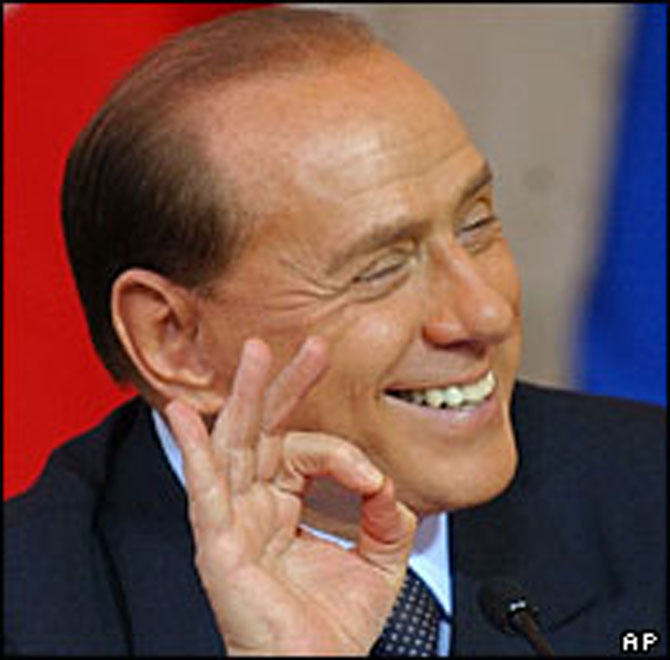Italian Prime Minister Silvio Berlusconi, facing a trial for alleged abuse of power and paid sex with an underage girl, on Friday called for the Italian judiciary to be reformed, and said that the country's political leaders should be free from criminal and civil prosecution while in office, Xinhua reported.
Italy's constitutional court in January gutted a controversial immunity law that protected Berlusconi and a handful of other top government officials from prosecution.
That move opened the door to the charges Milan prosecutors filed on Feb. 9 in connection to the 74-year-old Berlusconi's relationship with Moroccan-born cabaret dancer Karima el Mahrough. El
Mahrough, who is best known by her stage name "Ruby," was 17 when she first met Berlusconi.
Charges are that Berlusconi paid el Mahrough for sex while she was still a minor and then attempted to use his influence to free her from policy custody when she was arrested early last year for shoplifting.
Berlusconi insists he did nothing wrong in connection with el Mahrough, and through 17 previous criminal and civil investigations into his actions he has claimed that he is the target of what he calls "socialist judges" attempting to harm him for political motives.
Based on that argument, the prime minister on Friday said that the judiciary should be reformed and that immunity laws -- similar to the one rejected by the constitutional court last month -- should be established and extended to members of parliament.
Berlusconi's critics immediately defined the idea as an attempt to buy support from members of the legislative body, where Berlusconi's coalition holds a razor-thin majority and where judicial investigations are commonplace.
As of November last year, around two dozen members of the 630- member lower house of parliament had been indicted for felonies at some point in their career (some verdicts were overturned on appeal) and at least another 10 were under some kind of criminal or serious civil investigation, according to the Italian newspaper La Repubblica. Parliament would have to vote in favor of such a law in order for it to go into effect.
In that same lower house, Berlusconi narrowly dodged a collapse of his government in a Dec. 14 confidence vote, when he held onto power by a slim two-vote majority.
It is not immediately clear whether the new initiative will gain any traction in Italy, and even if it does, it will probably not help Berlusconi avoid the trial starting April 6.
Legal experts told Xinhua that it would be difficult to structure a new immunity law to be retroactive to charges filed before it goes into force.
Meanwhile, Berlusconi, who spent much of Friday hobnobbing with church leaders at the Vatican in connection with celebrations of the 82nd anniversary of the establishment of the Vatican city- state, continued to insist he is not worried by the trial starting April 6, and reiterated his claims of innocence.
An opinion poll released on Friday by the Rome-based polling firm Opinioni revealed that Berlusconi's approval levels continued to erode in recent days, dipping below 26 percent for the first time. This time last year, Berlusconi's approval levels were just over 50 percent.
The poll's directors said Italians continued to worry that Berlusconi's legal troubles may be distracting him from the affairs of state -- a factor also cited by Berlusconi on Friday to argue that a new immunity law is necessary.
Italy's Berlusconi calls for judicial reform, new immunity law
Italian Prime Minister Silvio Berlusconi, facing a trial for alleged abuse of power and paid sex with an underage girl, on Friday called for the Italian judiciary to be reformed, and said that the country's political leaders should be free from criminal and civil prosecution while in office.






